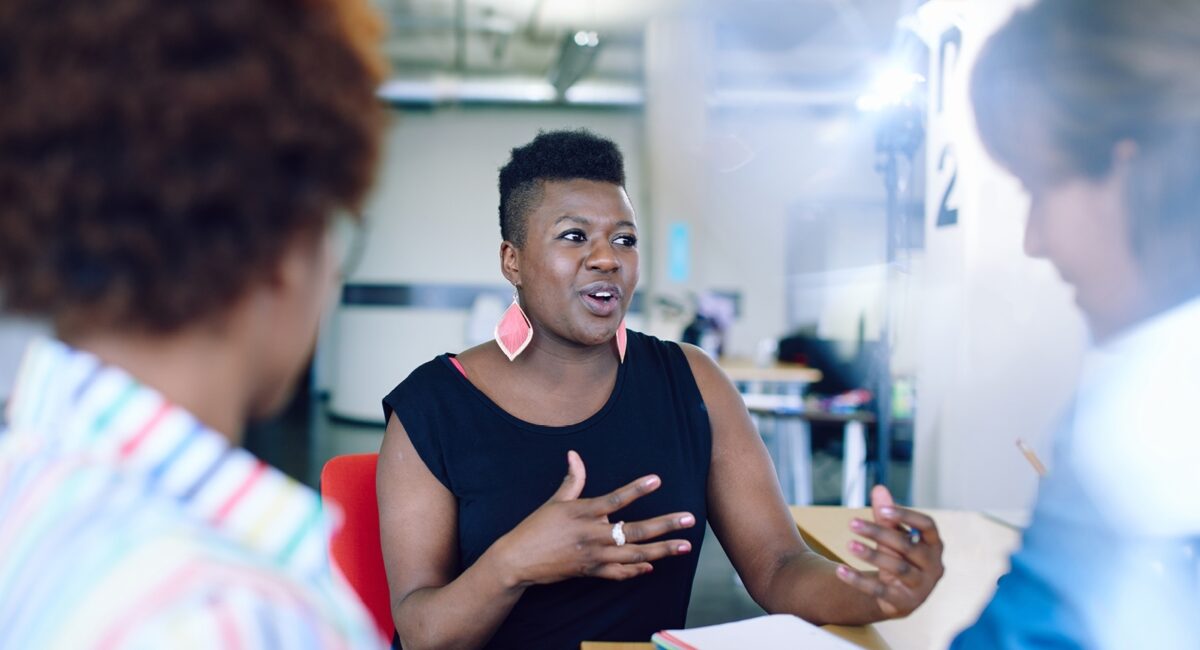
Dr Kristy Docherty, Director of Public Services at the Edinburgh Futures Institute, argues that for complex collaborations to be successful, we need to re-focus on relationships.
My interest in collaboration comes from over two decades of working on complex, cross sector, infrastructure and community projects linked to urban regeneration and renewable energy. The regeneration projects took place over many years, and almost always did not achieve the ambition, hopes and desires wished for by those of us who were collaborating towards improved economic, physical, environmental, and social outcomes for communities.
During this time, while the work was meaningful, the multi-disciplinary, cross sector collaborations were not working effectively; rather there were clear divisions and an inability between project team members to relate to and empathise with each other, and with the local people living in the communities in which they worked.
Wicked Problems
The need for, and complexity of collaboration, are both closely linked to the purpose of coming together in the first place. What problem or purpose does the group have, and how intractable is it?
Thinking about the concepts of wicked and tame problems can help us understand and frame collaborative approaches. Tame problems are challenges that involve few, similar stakeholders with a shared context. The problem itself, although complicated, is clearly defined, likely to have occurred before and considered solvable with a known solution.
Wicked problems, in contrast, are those that need an alternative approach and way of thinking; they are complex with no obvious connection between cause and effect. In these situations, problems are deep-rooted, systemic and cannot be addressed by a single leader or organisation, in fact they are considered unsolvable by many, and to break them down and attempt to deal with each discrete issue worsens the situation.
The collaboration challenge
When a problem is wicked, we know we must collaborate. Yet we don’t pay enough attention to how to do it effectively. I have previously conducted research into the collaboration challenge and why it so often falls short of our good intentions.
I found that more care, time and attention must be given by collaborating members to aligning working methods, financial barriers, data and security issues and historic sensitivities between stakeholders.

Bringing together individuals who are not used to working together may be problematic, as competing priorities, personalities, roles, motivations and perspectives react to an altered environment very much unlike their typical day-to day work. For example, individuals may remain acutely sensitive to political and organisational demands, structures and processes, individual responsibilities, and short-term policy priorities. In addition, they are conscious of intense external (and potentially internal) scrutiny.
There can be resistance to letting go of power amongst formal leadership and other stakeholders and excessive focus on procedures, single team or organisational targets, and performance related pressures - making it personally demanding and problematic to adapt to a collaborative setting and fully engage, even if desired.
Given the challenges associated with collaborating, it is somewhat surprising that there is a reluctance to focus on what it ‘means’ and ‘takes’ to collaborate across organisations and sectors, and to explore how this work differs from the work carried out within single organisations.
Taking a relational approach to collaboration
Recent research and work carried out by collaborative networks such as the Centre for Public Impact agree that the quality of our relationships matter and that taking a relational approach to our lives and work could help us address difficult issues and situations.
Drawing on this, my own work has led me to highlight five relational steps that can help [begin] to navigate complexity and to collaborate more effectively:
Acknowledge together that you are not yet a team and that building strong relationships is not inevitable. Don’t dive straight into the task.
Discuss (agree) that the quality of the relationships between individuals is as important as the task. It is hard work building and maintaining trusting relationships.
Make a conscious move towards getting to know others and the work that they do. Collectively acknowledge that there will be inevitable disagreement. Get past those polite conversations and 'under the surface'.
Determine and agree ways of working, sharing ideas and challenging each other (the collaborative group process). Create your own collaborative culture.
Be open to hearing the views and ideas of others (within and beyond the collaboration) and be willing to have your mind changed.
Kristy is currently working with partners in Police Scotland and Public Health Scotland to establish a ‘Prevention Hub’ to be based at the Edinburgh Futures Institute. The Hub is focused on reducing inequalities through actions to improve health and wellbeing. Building the capability and capacity for more effective collaboration across Scotland underpins its vision and work.
Header image: julief514 via Getty Images
Image: fizkes via Getty Images

We make it easy to access the University of Edinburgh’s multi-disciplinary expertise by matching your needs to the latest research, new technologies and world-class facilities.